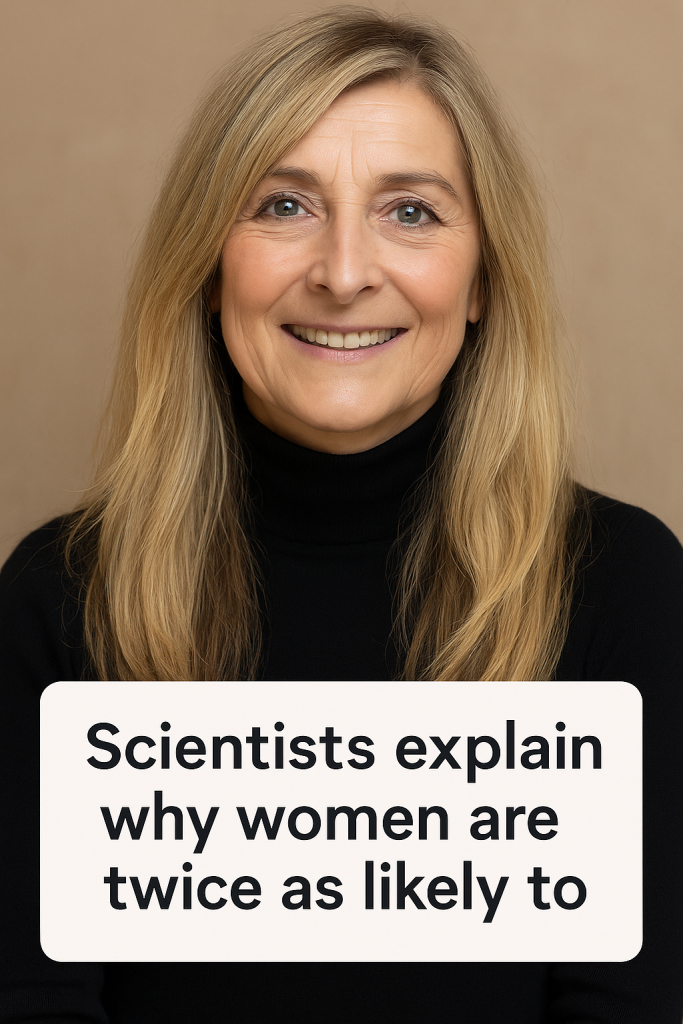New research has shed light on a long-standing medical mystery: why women are disproportionately affected by Alzheimer’s disease compared to men. While it has been known that women make up nearly two-thirds of Alzheimer’s diagnoses, the underlying reasons were unclear—until now. Scientists have identified a crucial biological factor that helps explain this disparity, following increased public awareness sparked by a prominent TV host sharing subtle early symptoms associated with the disease.
The revelation came after widespread attention was drawn to subtle signs of cognitive decline shared by the TV personality, prompting researchers to revisit and deepen studies into sex differences in Alzheimer’s risk. Recent findings indicate that a combination of hormonal changes and genetic vulnerabilities intersect to increase women’s susceptibility to the neurodegenerative condition.
Hormonal Influence and Brain Vulnerability
One of the primary discoveries points to the role of estrogen, a hormone that significantly declines during menopause. Estrogen is understood to provide a protective effect on brain cells, supporting memory and neural communication. When levels drop sharply in midlife, brain regions critical for memory, such as the hippocampus, become more vulnerable to damage.
Scientists explain that this hormonal shift may accelerate the buildup of amyloid plaques and tau tangles—both hallmarks of Alzheimer’s disease. The decline in estrogen also affects mitochondrial function and increases inflammation in the brain, compounding the risk. This hormonal vulnerability is unique to women, providing a biological explanation for why Alzheimer’s progresses more aggressively and frequently among females.
Genetic and Lifestyle Contributors
In addition to hormonal factors, genetics also play an important role. Women who inherit certain variants of the APOE gene—especially APOE ε4, the strongest known genetic risk factor for Alzheimer’s—are more likely to develop the disease than men with the same genetic makeup. Researchers believe estrogen interacts with these genetic risk factors, influencing the disease’s onset and advancement.
Moreover, lifestyle elements such as heart health, education level, and access to early diagnosis also influence outcomes. Experts are emphasizing the importance of awareness, particularly since initial symptoms may be subtle and often mistaken for normal aging.
Early Signs Are Often Overlooked
The TV host’s recent disclosure highlighted subtle symptoms like occasional forgetfulness, slight difficulties with complex tasks, and mood changes. These early symptoms are frequently dismissed but can be crucial indicators for timely diagnosis and intervention. Scientists are now urging the public, especially women, to take these early cognitive changes seriously and seek medical advice promptly.
Implications for Prevention and Treatment
Understanding this key factor opens new avenues for targeted prevention strategies and therapies. Hormone replacement therapy (HRT) is being re-examined as a potential protective measure when started at the appropriate time in menopause, though more research is necessary to define the safest and most effective approaches.
Scientists are also advocating for precision medicine approaches that consider sex-specific biological differences, which could revolutionize how Alzheimer’s is diagnosed and treated in women versus men.
Raising Awareness and Moving Forward
This breakthrough diagnosis and ongoing research highlight the critical need for increased awareness of Alzheimer’s disease, especially among women. By recognizing and understanding these subtle early symptoms, individuals can seek help sooner, potentially slowing disease progression through lifestyle changes and medical interventions.
As the scientific community pushes forward in unraveling the complexities of Alzheimer’s, this new understanding underscores a vital truth: sex matters in Alzheimer’s risk, and tailored approaches are key to combating the growing global challenge of dementia.
Stay informed, monitor subtle changes in cognition, and advocate for research that addresses these vital



